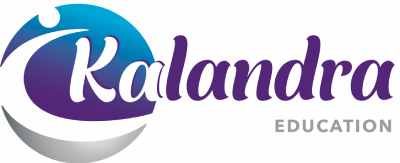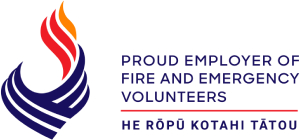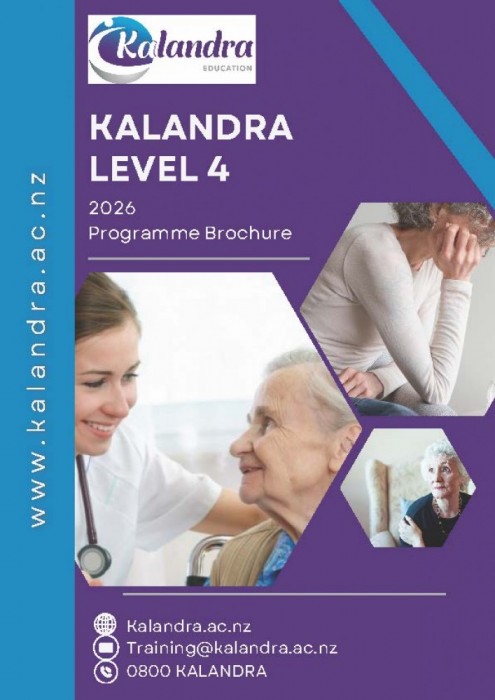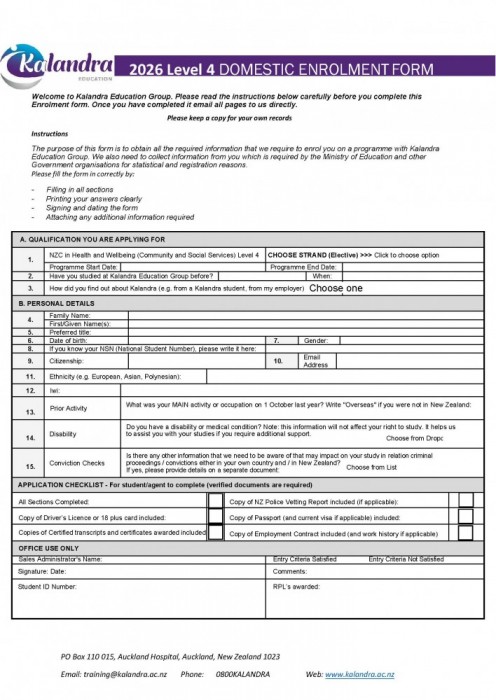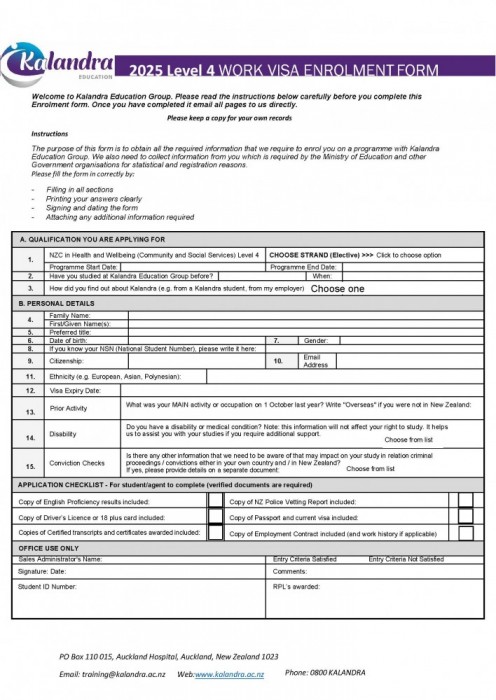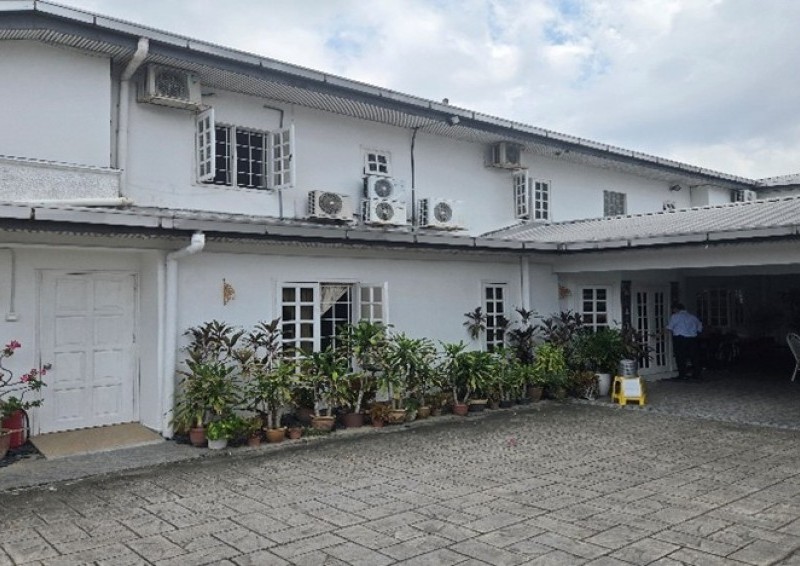Certificate in Health & Wellbeing (Level 4) with strands in Community Care Support, Palliative Care, Dementia Care, Mental Health Support, and Diversional Therapy
2026 Programme Start Dates:
- 2 March (applications have been extended to 6 March)
- 13 April
- 11 May
- 15 June
- 6 July
- 17 August
- 14 September
- 12 October
- 9 November
Note: all intake dates are subject to change depending on number of enrolments
Tuition Fee:
New Zealand Citizens / Permanent Residents
• Standard Fee: $4,444.00
• Special Scholarship for first 2026 intakes only: $1,111.00 (instalment option – 50% upfront, 50% in 3 months)
Please note further instalments can be provided in exceptional circumstances
Work Visa Holders
• Tuition Fee: $5900 (full payment of fees) / $6500 (instalment option – 50% upfront, 50% in 3 months)
• Special Scholarship for first intake only: $5000.00 (full payment) / $5900 (instalment option – 50% upfront, 50% in 3 months)
Please note further instalments can be provided in exceptional circumstances
Note conditions apply to the following for nz citizens/permanent residents;
1. Fees Free
- Until 5 October 2025: Go to to feesfree.govt.nz/final-year for information.
- From 6 October 2025: Inland Revenue becomes responsible for supporting learners with final-year Fees Free. Information available at ird.govt.nz/fees-free.
- From 15 January 2026: Learners who complete their first eligible qualification or programme can apply for final-year Fees Free in myIR.
2. Student loans and allowances maybe available please check the website https://www.studylink.govt.nz/
Additional Costs (may occur):
Police Vetting $25
Device (see at the end of the page places in NZ you can purchase a tablet or computer from)
Programme Overview
NZQF: Level 4
Total credits: 120
Delivery length: 46 weeks (including 6 holiday weeks). This 46 week programme is delivered ONLINE with no time off work required.
Total learning hours: 1200
Directed online learning: 20 hours per week. Students are provided with an individual learning plan and are supported throughout their study by experienced lecturers.
Work placement: Clinical hours in own place of work (as appropriate). A minimum of 10 hours per week.
At successful completion of the Certificate in Health & Wellbeing (Level 4) with strands in Community Care Support, Palliative Care, Dementia Care, Mental Health Support, and Diversional Therapy, students will be awarded the New Zealand Certificate in Health and Wellbeing (Social and Community Services) (Level 4).
Programme Content - compulsory components
The programme is taught over seven modules.
Module 1 - Relationships in Healthcare (24 credits)
This module is designed for students to gain a more in-depth knowledge of relationships and communication in healthcare. This, to develop an understanding of their own perceptions. This person-centred approach is intrinsic to the module which consists of the following unit standards:
- Work collaboratively in a health or wellbeing setting.
- Describe relationships between practitioners, and roles and responsibilities in group processes in a health care context.
- Develop and maintain positive relationships to achieve outcomes, in a health or wellbeing setting.
Module 2 - Personal Growth (18 credits)
This module is designed for students to gain a more in-depth understanding about personal growth as a worker in the healthcare industry. This person-centred module focuses on the individual, their strengths and improving their weaknesses and consists of the following unit standards:
- Demonstrate ethical practice and reflect on own ethical practice as a mental health and addiction support worker.
- Apply self-reflection in a health or wellbeing setting.
- Describe leadership in a health or wellbeing setting.
Module 3 - Contributions to the Workplace (15 credits)
Using a strength and knowledge-based approach, this module, is designed for students to gain a more in-depth understanding about the culture of service quality and safety, in health and wellbeing settings. This module consists of the following unit standards:
- Contribute to a culture of service quality, professionalism and ethical practice in a health or wellbeing setting.
- Contribute to quality and safety in a health or wellbeing setting.
Modules 4 & 5 are completed in the elective of choice, as detailed further below.
Module 6 - Communication & Engagement (17 credits)
Working in this complex environment requires a person-centred and strengths-based approach. This module is designed for students to gain a more in-depth understanding of communication and engagement with the client, family/whanau and community, and consists of the following unit standards:
- Communicate to support people’s health and wellbeing.
- Engage with tangata whenua and provide information on community support services in a health or wellbeing setting.
- Describe communication, and correct use of de-escalation approaches in mental health and addiction services.
Module 7 - Cultural identity and related issues (10 credits)
This module, designed for students to gain a more in-depth understanding of cultural identity and related issues, combines a person-centred and directed approach, with an awareness and knowledge of the impact of other cultures and cultural identity. This module consists of the following unit standards:
- Demonstrate knowledge of cultural identities and culture-related issues in an aged care, health, or disability context.
- Explain the impacts of colonisation on health and wellbeing for tangata whenua, and in a health or wellbeing setting.
Programme Content - elective components
Note: only one elective can be chosen for the completion of this certificate
Module 4 & 5 – Mental Health (36 credits) [previously named Mental Health & Addictions]
These modules include understanding the impact on health and well-being of a client and the range of professional responses that are available. This training will enable graduates to develop the knowledge and skills needed to deliver the highest standard of care and support for clients diagnosed with mental health or addiction problems.
Mental health and addiction issues can affect any age or sector of society, challenging or limiting the person’s ability to function and enjoy life, as well as impacting on their family who are often struggling to provide appropriate care and manage the wide-reaching effects.
The purpose of this programme is to provide organisations, associated with mental health and addiction, with graduates who have the skills, knowledge and behaviours, including dignity, empathy and respect, that are required to work effectively in this sector, providing support to the client, family/whanau, and colleagues.
Working in mental health is a challenging and rewarding occupation. This programme enables students who have some prior experience from working in a health and wellbeing setting, to further their knowledge, skills and working opportunities by extending into the mental health and addiction sector, meet Kalandra values and set the standard across the sector.
The modules contain the following unit standards:
- Behavioural Management: Manage mental health and addiction clients and behaviours in a care facility or in the client’s home.
- Person-Centred Care: Provide person-centred care, support, dignity, empathy and respect to the client, their family/whanau, and colleagues.
- Effective Capability: Maximise their effectiveness as a Health Care Support Worker, provide safe and ethical practice and contribute to a constantly changing environment.
- Knowledge of Mental Health Issues: Maintain awareness of issues affecting mental health clients including their effects on the client, and the risk of the client of vulnerability, abuse, and neglect in order to enhance their support capability.
- Communication and Support: Graduates will be able to acknowledge a person's culture and previous experiences, communicate effectively and provide support in a mental health and addiction care setting.
- Cultural Awareness: Graduates will be able to provide a service that respects their own and New Zealand's cultural awareness, especially the effects of Maori as tangata whenua.
- Leadership: Graduates will be able to exhibit personal leadership in the health and wellbeing service that demonstrates self-awareness and self-reflection.
- Ethical and Professional Conduct: Graduates will be able to demonstrate ethical, professional and safety orientated behaviour, contributing effectively to the health and wellbeing of the organisation.
- Health Sector Understanding: Graduates will be able to understand the role and the implications that this role has on the wider health sector.
- Effective Support and Care: Graduates will be able to effectively support and nurture all people living and working in the mental health/addictions and/or dementia care environment.
Module 4 & 5 – Dementia Care (36 credits)
These modules are designed for students already working in, or those who intend to develop a career supporting, the health and wellbeing of clients diagnosed with Dementia as well as their family and/or whanau.
Improvements in medical care and lifestyles means people are living longer and the fastest growing demographic internationally is 65 and over. With longer life spans there are also increasing numbers being diagnosed with dementia and that number is expected to triple in the next 35 years. The primary purpose of these two Health Care Support programmes is to meet the increased demand for dementia-qualified Health Care Assistants who understand the progression and effects of dementia and can provide optimal care and attention which enhances the client’s daily living experience or health outcome.
This module consists of the following unit standards:
- Person-Centred Care: Provide person-centred care, support, dignity, empathy and respect to the client, their family/whanau, and colleagues.
- Effective Capability: Maximise their effectiveness as a Health Care Assistant, provide safe and ethical practice and contribute to a constantly changing environment.
- Knowledge of Dementia Care Issues: Maintain awareness of issues affecting dementia care clients including their effects on the client and the risk of the client of vulnerability, abuse, and neglect in order to enhance their support capability.
- Communication and Support: Able to acknowledge a person's culture and previous experiences, communicate effectively and provide support in a mental health/addiction and/or dementia care setting.
- Cultural Awareness: Able to provide a service that respects their own and New Zealand's cultural awareness, especially the effects of Maori as tangata whenua.
- Leadership: Able to exhibit personal leadership in the health and wellbeing service that demonstrates self-awareness and self-reflection.
- Ethical and Professional Conduct: Able to demonstrate ethical, professional and safety orientated behaviour, contributing effectively to the health and wellbeing organisation.
- Health Sector Understanding: Able to understand the role and the implications that this role has on the wider health sector.
- Effective Support and Care: Able to effectively support and nurture all people living and working in the dementia care environment.
Module 4 & 5 – Community Care (36 credits)
The modules are designed to build on the foundation skills and knowledge in providing care for vulnerable clients in the community.
Caring for clients in the community can stretch across a wide range of support activities and strategies. Carers will learn to apply their learning into their workplace providing care and support for those who require it in their homes or other community health care settings.
This module consists of the following unit standards:
- Explain factors influencing people’s health and wellbeing and their implications when providing support in a community health care situation.
- Describe a person’s holistic needs and their impact on a person’s health and wellbeing and provide support to meet them. Supporting vulnerable people in the community to maintain their independence and self-esteem.
- Demonstrate knowledge of responding to people in situations of vulnerability in a health or wellbeing setting. Understand that people living in the community are vulnerable to abuse and neglect.
- Apply strategies to support a person with an acute condition in a health or wellbeing setting in the community. Know when it is important to report changes in health and wellbeing of clients.
- Apply strategies to support a person with a chronic condition in a health or wellbeing setting. Identify when a chronic condition requires a change in health strategies.
- Recognise and respond to change in the health and wellbeing of a person in an aged care, health or disability context.
- Support, mentor and facilitate a person to maintain and maximise independence in a community health or wellbeing setting.
Module 4 & 5 – Palliative Care (36 credits)
The modules provide learners with the opportunity to build on the knowledge or experience gained in the workplace and become more involved in the care and support of those who are at the end of their lives. Palliative Care is a specialist area and requires the carer to be able to provide comfort cares to the client and support whanau members through this period.
With medical interventions people are living far longer and even the palliative stage can stretch for much longer than it did in the past. People can be in palliative care but still living in the community, only entering a facility when they are unable to be cared for by whanau or support agencies. Today, palliative care focuses on providing comfort cares and strategies to make the life of the client in palliative care as positive and comfortable as possible.
This module consists of the following unit standards:
- Contribute to a personal plan for a person with complex needs.
- Describe and apply knowledge of supporting a person with complex needs.
- Apply strategies to support a person with an acute condition in a health or wellbeing setting.
- Apply strategies to support a person with a chronic condition in a health or wellbeing setting.
- Apply a palliative care approach in a health and wellbeing setting.
- Recognise and respond to changes in the health and wellbeing of a person.
Module 4 & 5 – Diversional Therapy (36 credits)
These modules provide the opportunity to train in the planning and delivery of activities and therapies for care facility participants. For those who are working as Activity Coordinators in a care facility, this qualification will support them in their roles by developing planning events and activities and provide a deep understanding of risk identification and minimization.
With the understanding that as people age, they still require activities both physical and mental in order to live a vibrant and healthy life. The Diversional Therapist is a key player in the health care facility, when developing a positive and stimulating environment.
This module consists of the following unit standards:
- Identify and research support services that support Diversional Therapy in a Healthcare setting.
- Describe diversional and recreational therapy.
- Develop, implement, evaluate and adapt safety strategies in a diversional and recreational therapy setting.
- Identify safety concerns, assess risk, and develop safety strategies in a diversional and recreation therapy setting.
- Develop, implement, and evaluate a diversional and recreational therapy setting.
- Develop, implement, and evaluate a diversional and recreational therapy plan for a person experiencing grief and loss.
Recommend joining the New Zealand Society of Diversional and Recreational Therapy as early as you are able to https://diversionaltherapy.net.nz/ - it takes 12 months to be recongised as a registered Diversional and Recreational Therapist from the time you become a member.
Employment Pathways
Employment Pathway: http://Government Information on Careers and Employment Outcomes
Mental Health & Addictions - Graduates can be employed in roles supporting people to foster hope and support recovery such as:
- Community / Mental Health / Addiction Support Assistant or Worker.
- Youth / Peer Support Assistant or Worker.
- Health Care / Home Care Support Assistant or Worker.
Dementia Care - Graduates of this qualification will have the skills and knowledge to be employed in a range of roles. Working alongside people, family and whanau across health and wellbeing sectors, and they can be employed in roles such as:
- Health Care Assistant – Aged Care and/or Dementia Care Unit.
- Health Care Assistant - Primary and Acute Care, Therapeutic Programme Care.
- Medical Practice Assistant.
- Homecare Support Worker / Caregiver.
Community Care - Graduates of this qualification will have the skills and knowledge to be employed in a range of roles. Working in the community with people, family and whanau across health and wellbeing sectors, and they can be employed in roles such as:
- Health Care Assistant – Aged Care and/or Disability sector within the community.
- Health Care Assistant in a community organisation.
- Health Care Assistant - Primary and Acute Care.
- Medical Practice Assistant.
- Homecare Support Worker / Caregiver.
Palliative Care - Graduates of this qualification will have the skills and knowledge to be employed in a range of roles. Working in the community with people, family and whanau across health and wellbeing sectors, and they can be employed in roles such as:
- Health Care Assistant – Aged Care and/or Disability sector.
- Health Care Assistant - Primary and Acute Care, Therapeutic Programme Care.
- Community Agency.
- Homecare Support Worker / Caregiver.
Diversional Therapy - Graduates of this qualification will have the skills and knowledge to be employed in a range of roles. Working in the community with people, family and whanau across health and wellbeing sectors, and they can be employed in roles such as:
- Diversional Therapist in an aged care facility.
- Activity Co-ordinator in a health care facility.
- Health Care Assistant – Aged Care and/or Disability sector.
- Health Care Assistant - Therapeutic Programme Care.
- Community Organisation offering activities for those who have limited capacity to participate in recreation.
- Homecare Support Worker / Caregiver.
Education Pathways
For graduates who wish to pursue further study related to health and wellbeing, this qualification may lead on to the New Zealand Certificate in Public Health and Health Promotion (Level 5), New Zealand Diploma in Addiction Studies (Applied) (Level 6) or Bachelor Degrees in related health and wellbeing subject areas. For graduates who intend to pursue further study related to leadership and management, this qualification may lead on to the New Zealand Certificate in Business (First Line Management) (Level 4), the New Zealand Diploma in Business (Level 5) and New Zealand Diploma in Business (Level 6) or Bachelor Degrees in related leadership and management subject areas.
Entry Criteria
New Zealand Citizen or Resident
- Aged 18 years of age and over
- NCEA Level 1 Numeracy and Literacy or equivalent
- Employed as a Health Care Assistant in a New Zealand care facility or care organisation for the duration of their programme enrolment, and/or undertaking regular volunteer work
- The learner holds the New Zealand Certificate in Health and Wellbeing (Level 3) or the equivalent qualification or experience
- Clean criminal record (an initial check will be completed through the New Zealand Police to ensure the learner is a fit and proper person to be working with vulnerable people, should the learner not have one)
- Physically able to do the job
- Willingness to work with the older person
- Supporting Documentation:
- Academic /Healthcare sector qualifications
- Work placement documents
*Students must also be currently working with at least two clients with the condition within the strand they are studying.
Work Visa Holders (classed as International Students):
As per above, PLUS
- English Language Certification: 5.5 IELTS (with no band less than 5.0 IELTS) or PTE (Academic) score of 42 with no band score lower than 36 or an equivalent internationally recognised test
- Certification must be no more than 2 years old and from one test
- Employed as a Health Care Assistant in a New Zealand care facility or care organisation for the duration of their programme enrolment
- Supporting Documentation:
- Endorsement of Enrolment from Employer
- Police Check: Clear Criminal Check – An initial check is to be provided from the country of last abode
* Students must also be currently working with at least two clients with the condition, within the strand they are studying.
To Apply
NZ Citizens/Permanent Residents/Resident Visa Holders: Complete this Application Form and email along with supporting documentation to: training@kalandra.ac.nz
- Current ID (including residency status if applicable) - we recommend a certified copy of your passport, birth certificate, or certificate of citizenship*
- Copy of current employment contract
Work Visa Holders: Complete this Application Form and email along with supporting documentation to: training@kalandra.ac.nz
- Certified copy of passport* and current work visa which must cover the duration of the programme
- Copy of current employment contract
- Evidence of English proficiency results
- Letter/email of support from employer, stating they are aware you are enrolling in the programme
- NZ Police Vetting Report: must be no more than two years old and should be obtained by employer. If a new one is required, we can request one for you and in this case the submission cost is $25 and must be paid to Kalandra prior to the request submission
*To be accepted as certified document(s), these now need to be signed and dated by a person authorised to take declarations. This could be a:
- Justice of the Peace (JP) - find a JP
- Lawyer
- Barrister
- Notary Public
- Court Registrar or Deputy Registrar
- Member of Parliament
Checklist - quick reference sheet
FAQs Sheet
Student Handbook: Click on this link to download the Student Handbook 2025/2026.
Read what some of our graduates think about studying at Kalandra:
- Maraea Tauhinu: "It was a big challenge for me to start studying again as I had left school at 15 and am now 58 years old. The team at Kalandra guided me all the way through from the day l started to the day I graduated." Read more ......
- Eslam Gadallah: "The programme showed me how I can help my clients set their goals, write an achievement plan and then my role is to work alongside them to help each client achieve those goals. I try to apply everything I studied to my work each day." Read more ....
- Lois Filipi: "I really enjoy my job as a Health Care Assistant now because after studying at Kalandra, and getting so much support from my tutor........I now know what I am doing and am confident in myself and my knowledge." Read more......
Tuition is Online
It is required that you have internet and a device, in order to complete your studies successfully. You need to be able to access: Facebook and our online learner platform. You must also undertake research online and produce documents using Microsoft Office - Word, Excel, PowerPoint.
Link to Mobile Compare which identifies internet providers and allows you to compare the options.
The following computer suppliers have competitively priced example devices:
Last Updated: 24 February 2026
Back to programmes
